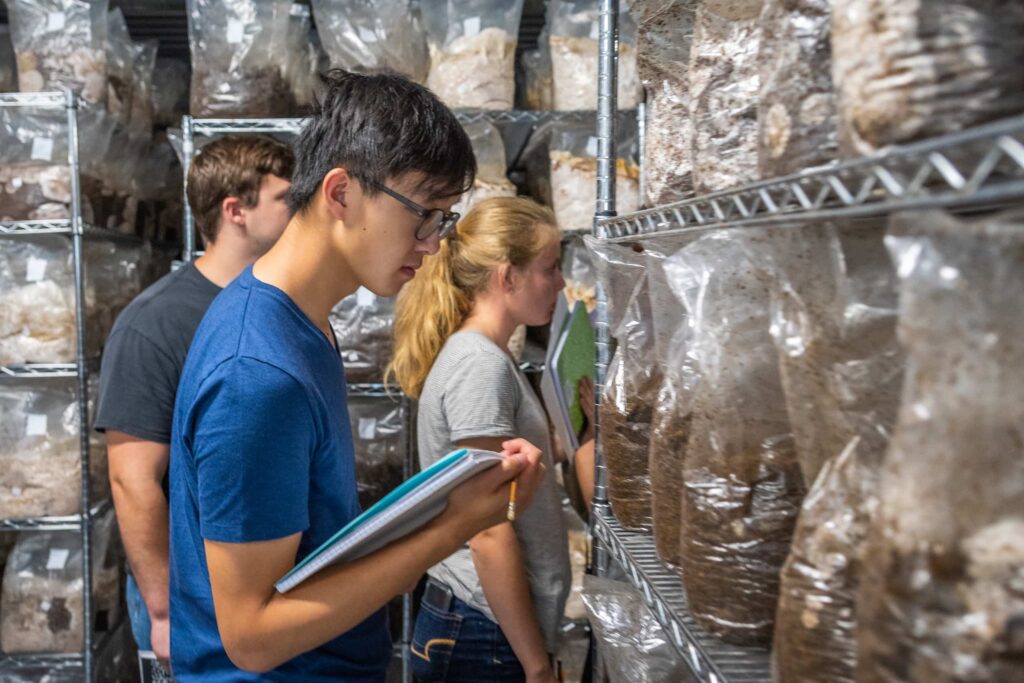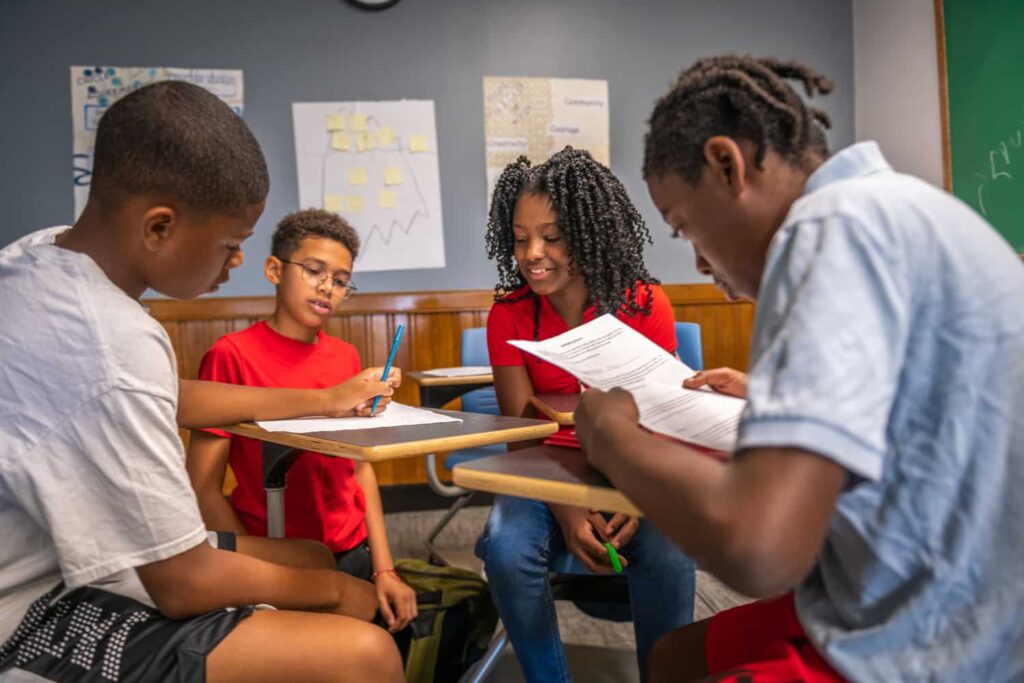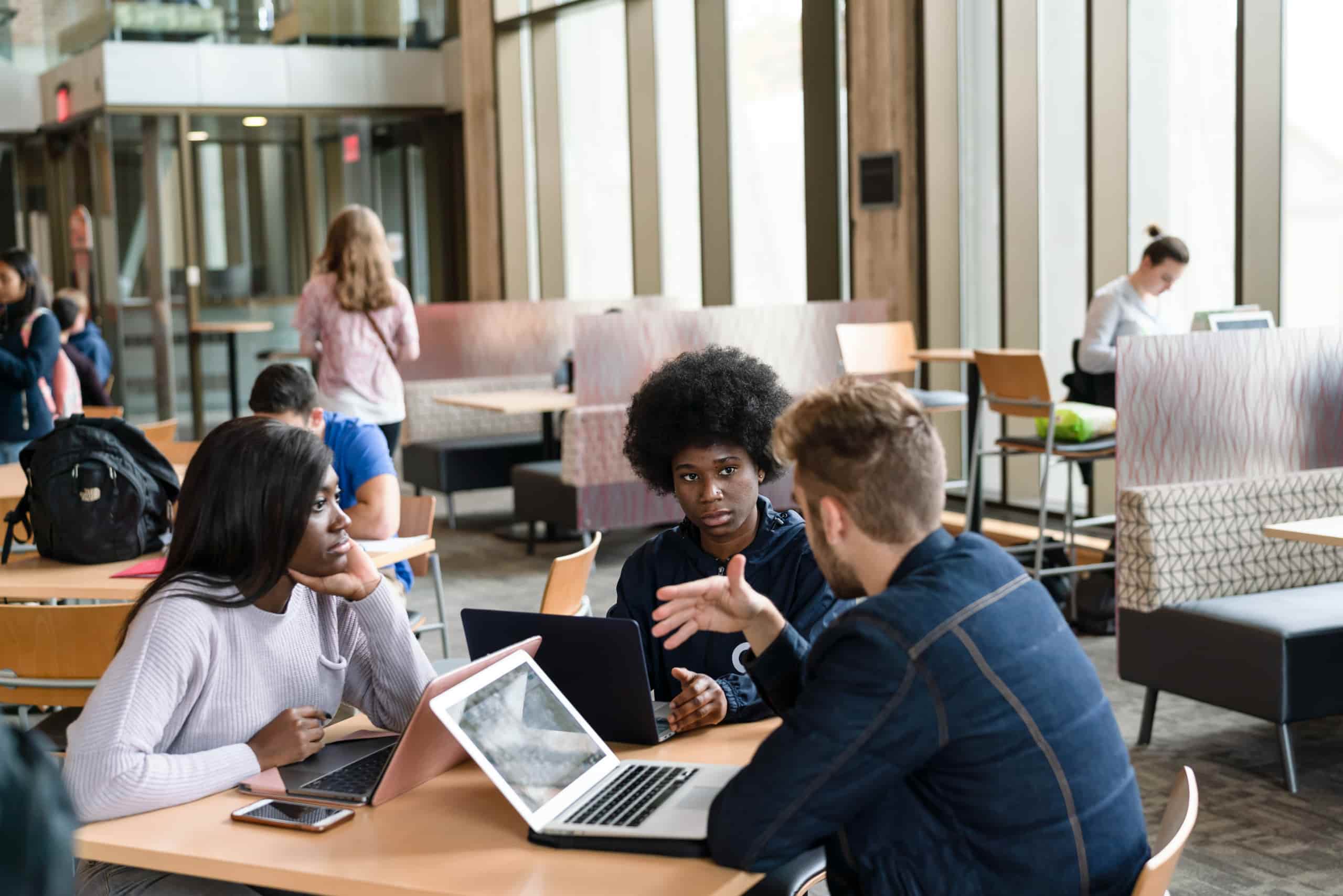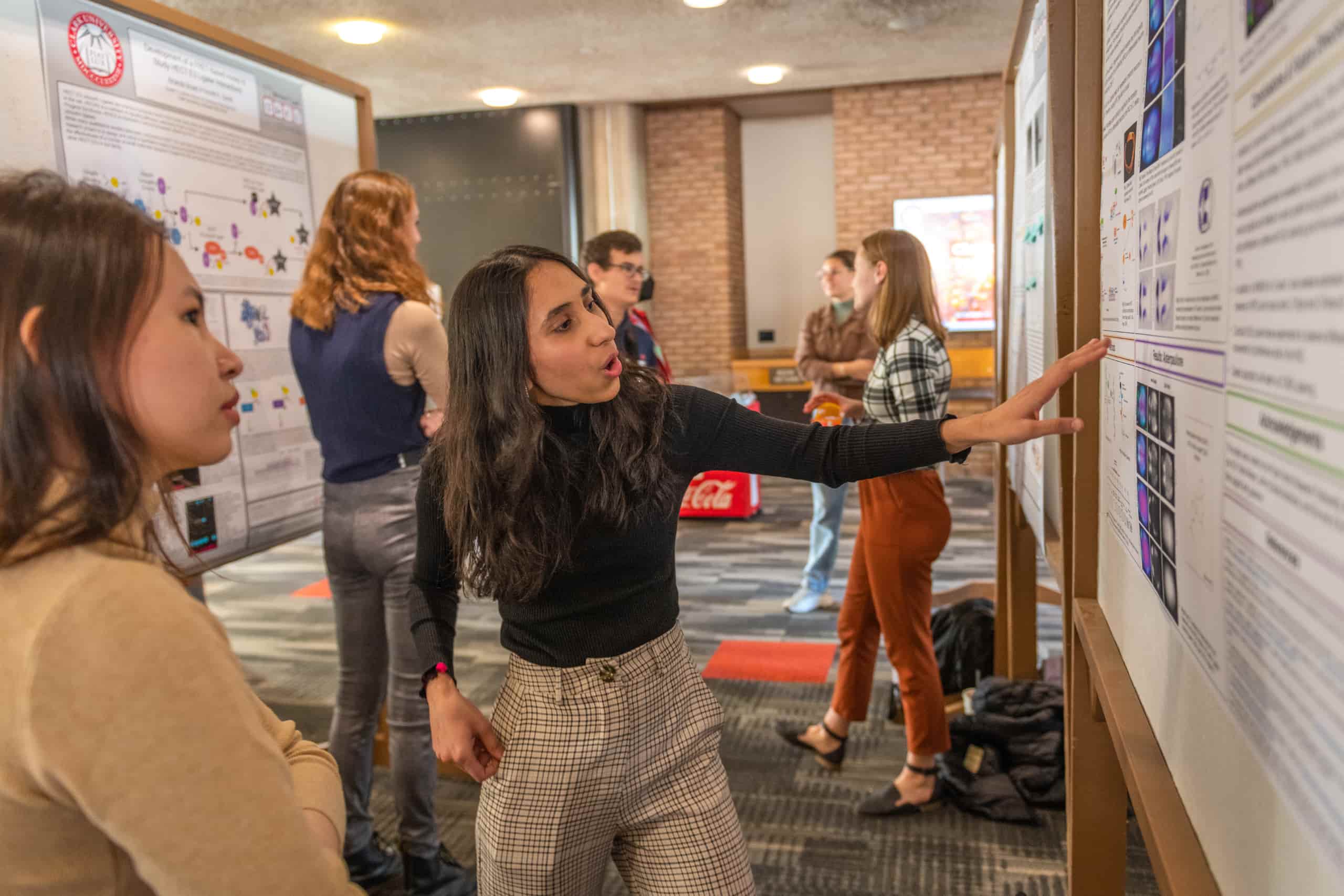Drive Innovation in Academics
Through a unique academic innovation grant program, Clark enhances the quality of education at the University.

A community art gallery that examines gun violence. A comic book about the microaggressions focused on Black natural hair. These are just two examples of social justice projects undertaken by middle schoolers as part of a summer educational program launched by Clark education faculty and community organizers. The organizers’ goal: to open the Audre Lorde Transformative Arts School (ATLAS), which would challenge the standard approach to education and operate within the Worcester Public School system.
“We look to artists like Audre Lorde who thought outside the box. We designed a program that was for the kids who don’t always enjoy school but who can develop their critical consciousness and radical imagination,” says Eric DeMeulenaere, a Clark education professor and a member of the ALTAS organizing team.

ATLAS is one of 22 projects to receive academic innovation funding from Clark — a total of more than $320,000 in 2022. The grants are tied to Clark’s Strategic Framework goal of achieving greater academic and research excellence, and many projects — like ATLAS — also incorporate other framework goals such as advancing diversity, equity, and inclusion (DEI) and expanding our outward engagement.
Examples of additional projects receiving academic innovation grants include:
- Equity in Action, an initiative to provide staff, faculty, and students with insights, tools, and strategies to contribute to an increasingly just Clark. A daylong conference, “Advancing Anti-Racism Plans of Action on Campus,” kicked off the project and included sessions, activities, and opportunities to build community among students, staff, alumni, and faculty invested in anti-racism. The project’s leaders are Hayley Haywood, assistant dean for equity in research and learning, and Laurie Ross, associate dean and director of the Center for Excellence in Teaching and Learning.
- Justice to Jobs (J2J) program, which supports undergraduate students involved in DEI work and leadership experiences on campus. As part of a retreat with alumni and faculty, students participated in workshops on conducting career searches, developing resumes that highlight their DEI work, and writing statements of purpose for graduate programs that integrate social justice and activism with intellectual inquiry. The students’ materials have been archived to benefit future undergraduates. Hayley Haywood, assistant dean for equity in research and learning, and Jie Park, director of the Center for Gender, Race, and Area Studies, continue to coach and mentor the students and analyze the program’s impact.
- An Interactive Theater class, taught by Becker School of Design & Technology and Visual and Performing Arts faculty — Terrasa Ulm, Jessie Darrell-Jarbadan, Ezra Cove, and Amanda Theinert — melds games and theater through students’ design of characters and costumes. The class will culminate in a play presented in the Little Center’s revamped Michelson Theater, where audience members may interact with performers.
- A summer project teamed students with biology professors Nathan Ahlgren, Philip Bergmann, and Javier Tabima Restrepo to study urban impacts on water quality, frogs, and microbial communities in Worcester waterways. The project integrated student research, classroom learning, and local STEM outreach.
- Clark’s two longtime undergraduate research festivals — Fall Fest and Academic Spree Day — reimagined as ClarkFEST, an opportunity for students and faculty from multiple disciplines to exchange ideas, including through improved technological capacity. More than 80 students presented posters in April 2022 at the newly launched ClarkFEST, which also featured oral presentations, panel discussions, and 30 interactive media exhibits presented by students in the Becker School of Design & Technology.


